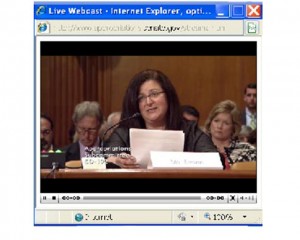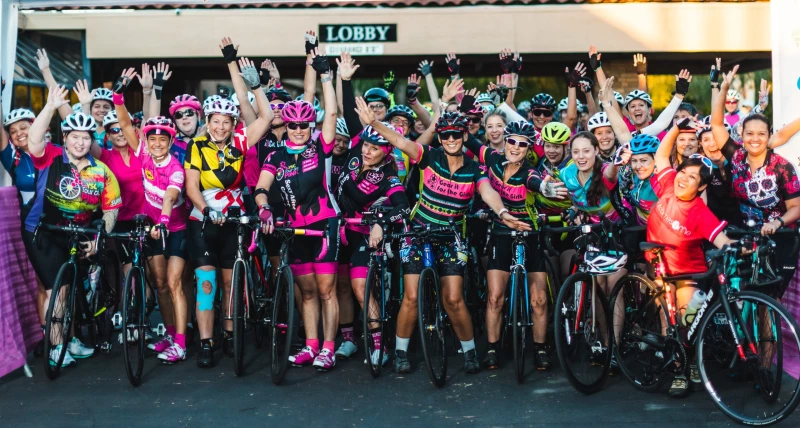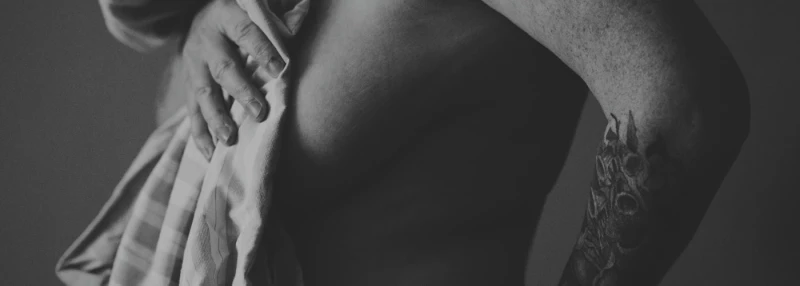
In 1994, I was a happy-go-lucky, single, 26-year-old focused on my career and family. Breast cancer and advocacy weren’t anywhere on my radar. All that changed when I found a lump under my right nipple and was subsequently diagnosed with breast cancer. Suddenly, I was focused on medical treatments and finding my new normal as a very young cancer survivor.
Discouraged by the lack of resources available and concerned about the underrepresentation of young women in breast cancer research, I came together with two other young breast cancer survivors in 1998 and co-founded Young Survival Coalition (YSC). YSC was the first nonprofit organization to focus exclusively on the unique needs of young women diagnosed with breast cancer, and it began as a grassroots advocacy movement to increase the quality and quantity of life for young women diagnosed with breast cancer.
YSC realized that if we were really going to accomplish our mission, we needed to partner with other organizations. We have been working with the National Breast Cancer Coalition (NBCC) since our inception. NBCC's mission is to end breast cancer by January 1, 2020, through education, advocacy and action. YSC is a board member organization of NBCC.
On June 6 18 years after being diagnosed and almost 15 years after co-founding YSC, I testified before the Senate Appropriations Defense Subcommittee in Washington, D.C. It was not my first time. But, someone asked me about the experience and how I felt. It got me thinking. The first time I testified, I was overwhelmed with the idea of asking members of the U.S. Senate to make breast cancer research funding a priority. Then I stopped to think about all the amazing young women and men that we lose to this awful disease, including a very long list of friends: Randi Rosenberg (diagnosed at 32) who passed away at the age of 44 in 2010, Lisa Muccilo (diagnosed at 27) lost her battle at the age of 33 in 2003, and Mary Knipp (diagnosed at 35) who died at 43 in 2006.
All of these ladies lived past their five-year survival marks, and they enriched and inspired my life. They all lobbied for the Department of Defense (DOD) Breast Cancer Research Program (BCRP), so I felt like it was a gift to testify for the program. I also thought of all the knowledgeable advocates who do this very difficult work because we need to better understand how to end breast cancer. Knowing that I am standing before senators representing all of them and so many families affected by this disease, I feel inspired and driven to bring the group’s perspective to this influential subcommittee. This is not my story alone.
So, how does one make a case for a line item in the appropriations budget to help fund high-impact, innovative, collaborative and high-risk research? The proof is in the pudding. The DOD BCRP has worked since 1992. Targeted therapies, like Herceptin, have been developed as a direct result of this program. Biomedical research is being transformed. Innovation and dedication can be seen in the applications and at the decision-making table. To end this disease, we need to continue investing in this effort.
At the DOD BCRP, informed advocates of all levels sit at the table. As one of those advocates, I can tell you we ask for the money and ensure the program only funds critical research that will impact our lives. For eight years, I’ve watched how well that decision process works. It’s easy to speak up for something that you know produces results. Since I am a NBCC Project LEAD® graduate and attend the yearly Advocate Summit, those who run the program know I am educated and qualified to serve effectively.
So, when asked whether I’m nervous about testifying in front of the Senate, the simple answer is no. I don’t have the time nor the luxury to be nervous. This year nearly 290,000 women and men will be diagnosed with breast cancer, and we continue to lose about 40,000 annually to this disease. They, along with our future generations, need the DOD’s peer-reviewed BCRP.
The women who were in surgery, chemotherapy or undergoing other treatments when I testified on June 6 had a much tougher task that day than I did. The families who were helping their loved ones in a hospice know what a difficult task is. I just needed to stand before the committee to represent all of them and emphasize the need to continue the innovative, high-risk, high-reward, collaborative work done by the BCRP in its mission to eradicate breast cancer.
I feel honored to have had the opportunity to represent all of the individuals whose lives are affected by this disease.


